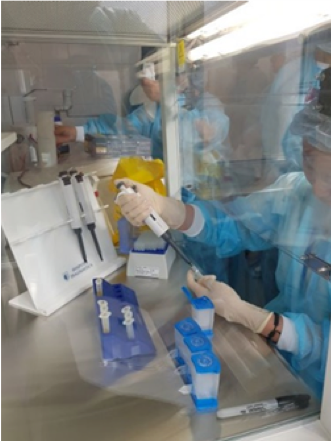CLSI Participates in HIV Viral Load Capacity Building in Central Asian Countries
2/18/2019

CDC and CLSI have collaborated to support national HIV programs in Kazakhstan, Kyrgyzstan and Tajikistan in developing a national laboratory workforce.
To a large extent, PCR methodology remains unfamiliar or poorly understood by laboratory, public health leaders and decision makers in the Central Asian Region (CAR). This is a result of limited training in molecular biology and absence of formal training centers or laboratory schools. To meet an increased demand for antiretroviral treatment and viral load testing rapid scale up CDC and CLSI organized a series of four HIV Molecular Testing Methodology – PCR training workshops for Central Asia laboratory specialists to support strengthening of HIV viral load testing services.
The first CAR regional level workshop was held in February 2018 in Bishkek, Kyrgyzstan. It was followed by a series of three national practical molecular testing training sessions in each participating country. Through these workshops, approximately 40 Central Asian molecular testing technologists have enhanced their knowledge of PCR techniques and advanced their skills in good molecular biology practices. The workshops provided a special focus on biosafety, quality control, contamination prevention, and troubleshooting issues. The training agenda was customized to address each country’s distinctive needs in strengthening laboratory personnel practical skills. The trainees appreciated classroom and bench work practical sessions thoroughly designed and facilitated by CLSI subject matter experts (SMEs), as well as sessions on quality control, viral load results calculation, and interpretation techniques.
Considering absence of molecular biology formal training facilities, it required the tremendous collaborative efforts and dedication of CLSI, CDC, and HIV laboratory and logistics teams to arrange full-scale and safe practical trainings.
One trainee told us, “This is a new kind of laboratory work for me and everything on theory and practice was useful. For the first time, I’ve learned how to properly organize my PCR workplace, I’ve understood what happens in a test tube during molecular testing, and how to correctly interpret test results.”
To consolidate successes achieved, by request of national counterparts, CLSI will continue providing technical assistance to HIV viral load testing personnel by arranging online consultations with SMEs and on-site mentorship support to increase the knowledge and core competencies of laboratory staff performing HIV molecular testing in CAR countries.
